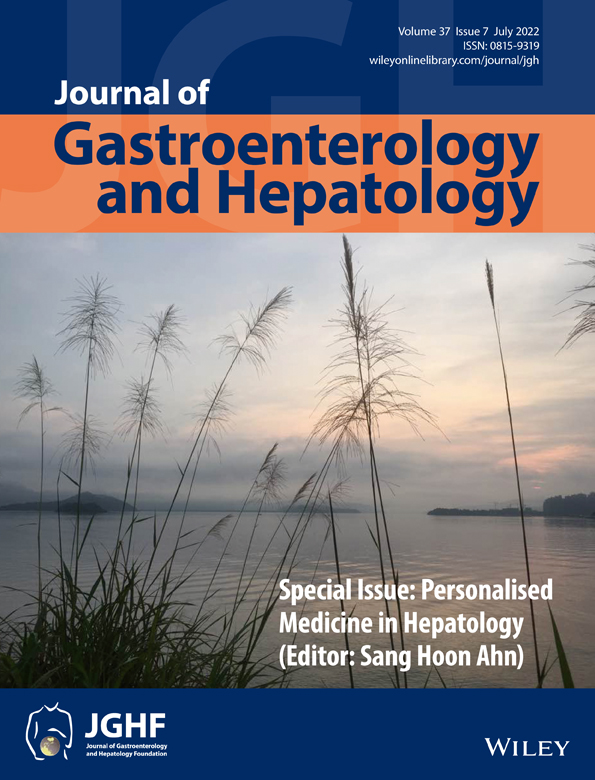Optimal candidates for early colonoscopy in the management of acute lower gastrointestinal bleeding
Declaration of conflict of interest: The authors have no conflict of interest to disclose.
Ethical approval: This study was approved by the Institutional Review Board of the Hiroshima City Asa Citizens Hospital on March 29, 2021 (IRB no. 03-1-4), which waived the requirement for informed consent given the retrospective nature of the study.
Financial support: This research received no specific grant from any funding agency in the public, commercial, or not-for-profit sectors.
Abstract
Background and Aim
Early colonoscopy has not shown any advantages over elective colonoscopy in reducing the risk of early rebleeding (≤ 30 days) after acute lower gastrointestinal bleeding (ALGIB). Considering the heterogeneity among patients with ALGIB, we sought to evaluate appropriate candidates for early colonoscopy.
Methods
A total of 592 patients with ALGIB were enrolled, and the clinical outcomes of early colonoscopy were investigated. Thereafter, the participants were divided into two groups: the recent bleeding group (n = 445), with hematochezia 0–6 h before hospital arrival, and non-recent bleeding group (n = 147). The clinical outcomes yielded by early colonoscopy were assessed in each group.
Results
The multivariate analysis including the entire population revealed that early colonoscopy (< 24 h) did not reduce the risk of early rebleeding (adjusted odds ratio [AOR], 0.88; 95% confidence interval [CI], 0.55–1.39). However, in the subgroup analysis, early colonoscopy independently reduced the risk of early rebleeding in the recent bleeding group (AOR, 0.56; 95% CI, 0.33–0.94). Moreover, a reduction in the need for radiological or surgical intervention (AOR, 0.34), transfusion (AOR, 0.62), and prolonged hospitalization (AOR, 0.42), as well as improvement in diagnostic yield (AOR, 1.78) and endoscopic treatment rates (AOR, 1.66), were observed. Early colonoscopy did not improve the outcomes of the non-recent bleeding group.
Conclusions
Early colonoscopy is not required for all patients with ALGIB. However, it may be suitable for those with hematochezia 0–6 h before hospital arrival, as it reduces early rebleeding and improves clinical outcomes.
Open Research
Data availability statement
The datasets used and/or analyzed during the current study are available from the corresponding author upon reasonable request.




